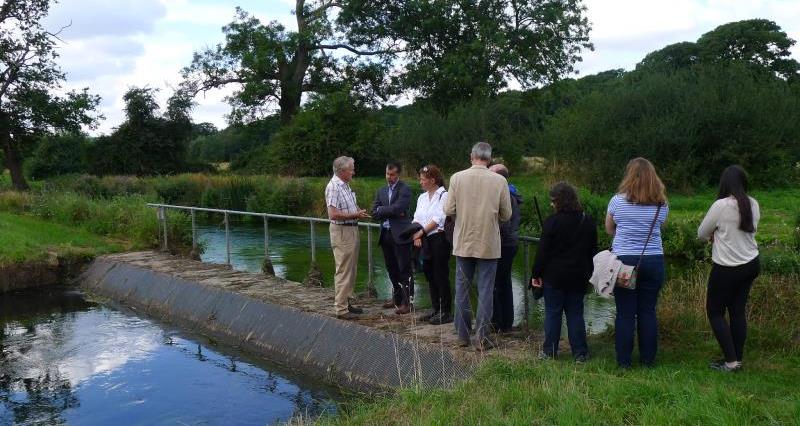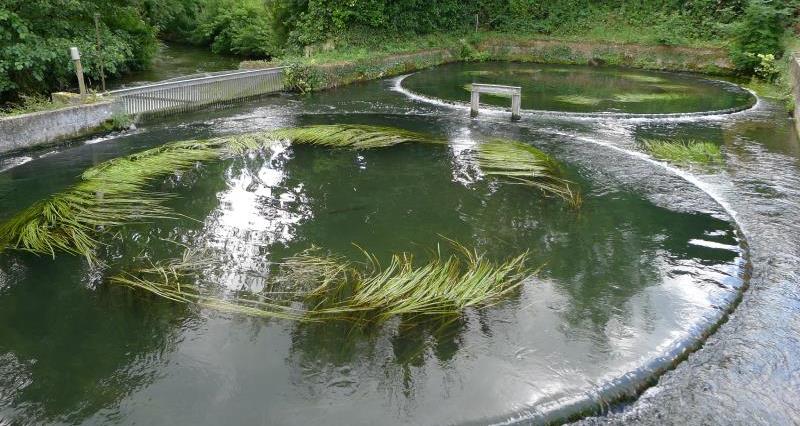In brief
The NFU has supported the British Trout Association during an on-farm discussion with Defra about the impact of abstraction reform for non-consumptive water users like fish farms and watercress growers
The NFU has joined the British Trout Association (BTA) in discussions with Defra and the Environment Agency to highlight the special characteristics of non-consumptive water users like fish farms and watercress growers.
Defra’s abstraction reform proposals are a response to the expected pressure that will be placed on the environment resulting from increased water consumption due to population growth and climate change.
Whilst the focus of policy development is not surprisingly on balancing the needs of the environment with businesses who consume water, how will ‘non-consumptive’ water users be treated?
Read more
- Government announces proposals for abstraction reform
- Water - farming's essential ingredient
Fish farms and watercress farms are described as ‘non consumptive’ because water is abstracted from the river at the ‘top end’ of the site but then wholly returned to the river at the ‘bottom end’ of the premises. Impact on river flow is therefore highly localised.
The BTA and NFU are therefore seeking a ‘light touch’ approach to the regulation of these low risk users.
The event was organised by the BTA and included visits to a number of sites along the river Test, an iconic chalk river in Hampshire.

Around 16,000 tonnes of Rainbow trout are produced in Britain each year, about 75% of which is farmed in freshwater tanks, ponds, netting, cages and raceways.
Trout farms need a clean river for adequate water supply, in an accessible spot. Trout are cold blooded and are greatly affected by water temperature. The warmer the water, the fewer the fish that can be stocked there and the greater the water flow needs to be; this is because the solubility of oxygen in water decreases with temperature.
The total volume of water available on any one site will be a limiting factor in the expansion of a trout farming business.
Paul Hammett, who represented the NFU during the site visit, said that much of the discussion with Defra and the Environment Agency focused on ideas around ‘catchment rules’ which are a key feature of abstraction reform.
“We had lots of questions about what the rules might look like, how they would be devised – and whether they could be challenged”, said Paul.
“We were told that the catchment rules will be integrated with the new permit – the permit would link directly to statements in the catchment rules, much like the farming general binding rules that we already have to address issues surrounding agricultural diffuse water pollution”.
Paul Hammett said that the BTA and NFU were reassured that rules will be devised in each catchment that will be subject to local consultation and the rules will be subject to appeal.
Trout farms tend to be well established businesses with old ‘licences of right’, and so the switch to permits as part of the reform proposals could mean less security for businesses.
The NFU stressed to Defra that the potential upheaval of businesses switching from licences to permits must be kept to an absolute minimum.
Defra will continue to develop its proposals for non-consumptive use, with further discussion promised before the end of 2016.
